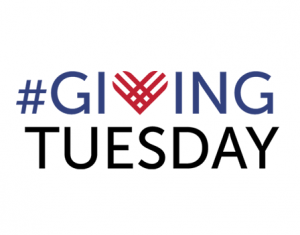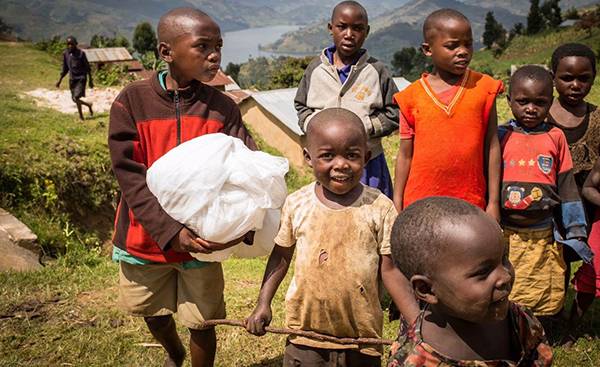You are here
Today is Giving Tuesday. Give a Net. Save a Life.
Imagine living in extremely close quarters with your neighbors, a diet that offers poor nutrition, decreased immunity to diseases and lack of health services. This is what life is like for nearly 277,000 refugees in the Bidi Bidi camp in Uganda—currently the world’s largest refugee camp. These refugees came here to escape the civil war in South Sudan, fleeing conflict and famine. These poor living conditions have led to a recent dramatic increase in malaria, a potentially fatal but preventable mosquito-borne disease caused by a parasite.
 The World Health Organization (WHO) recommends all persons living in malaria endemic areas such as the Bidi Bidi camp be protected from mosquito bites. One form of protection is an insecticide-treated bed net. However, the massive influx of refugees has overwhelmed the available supply. In fact, it is estimated that only about 23,000 nets have been distributed to the refugee population this year, meaning less than 20 percent of the population are currently covered. WHO estimates that approximately 150,000 nets are needed to fully cover the population.
The World Health Organization (WHO) recommends all persons living in malaria endemic areas such as the Bidi Bidi camp be protected from mosquito bites. One form of protection is an insecticide-treated bed net. However, the massive influx of refugees has overwhelmed the available supply. In fact, it is estimated that only about 23,000 nets have been distributed to the refugee population this year, meaning less than 20 percent of the population are currently covered. WHO estimates that approximately 150,000 nets are needed to fully cover the population.
The Centers for Disease Control and Prevention (CDC) and the CDC Foundation are committed to providing insecticide-treated bed nets to the refugees at the Bidi Bidi camp, so families can protect themselves from mosquito bites and the spread of malaria while they sleep.
Today is Giving Tuesday. Please join with us to save and improve the lives of these families by making a gift to the Bed Nets for Children fund. Your gift of $25 will purchase 5 bed nets or $100 can purchase 20 nets, making a tremendous difference to the children and families of Bidi Bidi.
Help us make sure every family in Bidi Bidi has a bed net.

